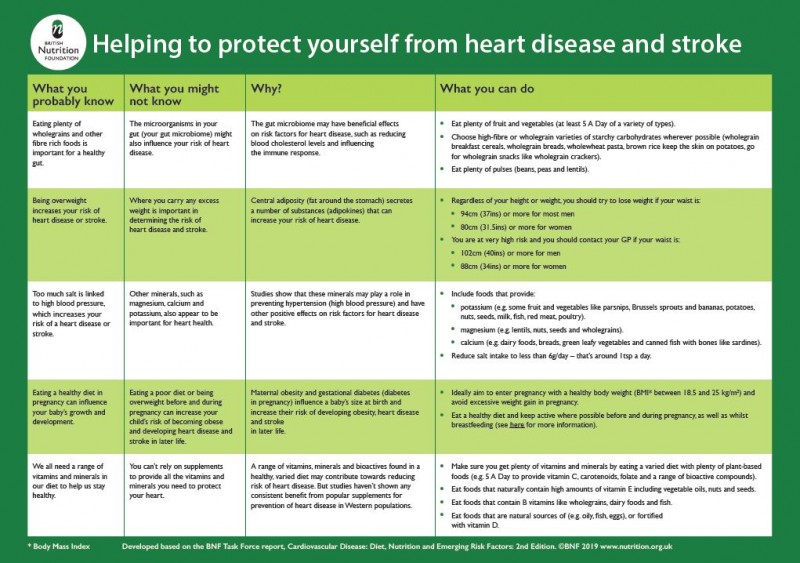
According to research, exercising can help reduce or prevent many chronic diseases. People who exercise moderately are less likely to get certain types of cancer. Regular exercise is associated with a lower risk of developing cardiovascular disease and diabetes. These conditions are more common in people who exercise regularly, and this can be prevented.
Exercise has many benefits. It has been shown that exercise can improve memory and concentration, decrease the risk of depression, increase the immunity system, and lower cholesterol and blood pressure. Physical activity can increase the WBCs, making it an effective anti-inflammatory agent. This could help with a variety of ailments. And because of the many other benefits of exercise, the evidence is growing for its use as a treatment for chronic diseases.

Transdiagnostic benefits of exercise can be different depending on what symptom you are experiencing. Exercise can help improve sleep quality, mood, stress relief, and anxiety. Exercise can also help reduce the risk of developing diabetes, heart disease, stroke and other diseases. Not only can you prevent these diseases but exercise is also beneficial for maintaining a healthy weight, and overall good health.
According to the Mayo Clinic in the U.S., 29 million people have diabetes. These patients, who are most often unaware of their condition, have not been diagnosed. The mortality rate of patients with heart attacks was reduced by 20-25 percent compared to the non-participants in a study. Other studies also showed higher mortality reductions. Studies from the past were reviewed in large numbers and concluded that exercise rehabilitation made it more likely for people to survive heart attacks.
Regular exercise can have many health benefits. It can improve quality of life and reduce the likelihood of developing many diseases, such type 2 diabetes, cardiovascular disease, or other types of cancer. It can also lower the likelihood of other health problems such as depression, anxiety, dementia, or dementia. These are just some of the many health benefits that exercise can bring. It is vital to exercise and stay active to avoid chronic diseases. There are numerous other advantages of exercising.

Regular exercise is linked to lower chances of developing chronic illnesses such as diabetes and heart disease. It can, for example, lower the risk of high bloodpressure and other complications. It can also improve your overall well-being. Study of heart failure showed that exercise can reduce the risk of stroke. This means that cardiovascular disease risks are lower if you exercise more. If you're overweight or obese, exercising can help to lose weight.
FAQ
What are the best foods to avoid when trying weight loss?
Trans fats should be avoided. Trans fats increase LDL cholesterol (the bad) and decrease HDL cholesterol (the healthy).
Trans fats can also be found in deep-fried food, fast food, packaged bakery goods, snack cakes, as well as other processed foods.
These unhealthy fats also contribute to inflammation, leading ultimately to heart disease or diabetes.
Avoid eating foods that contain artificial sweeteners. Artificial sweeteners have been linked to an increase in cancer risk.
These chemicals are used in everything from soft drinks to chewing gum to candy bars. These chemicals are also found in meat, poultry, eggs, and other foods.
Artificial sweeteners include saccharin, cyclamate, sorbitol, aspartame, acesulfame-K, and sucralose.
The American Heart Association advises against using these chemicals, as they could damage DNA.
Which dietary supplement can help you lose weight?
Exercise and diet are key to losing weight. Some people find that supplements can help them along the journey.
Studies have shown that omega-3 fatty acid may be beneficial in weight loss. Omega-3 fatty acid is an essential fat that is important for brain function as well as cell membrane integrity. They're found in seafood like salmon, tuna, shrimp, and cod liver oil.
Other research suggests that green tea might be beneficial for weight loss. Green tea contains catechins. These antioxidants may be able to increase metabolic rate and encourage weightloss.
Do I need to exercise every day?
No! At least 30 minutes moderate-intensity exercise five days per week is a good goal. That could mean walking fast enough for you to get slightly out of breath and biking hard enough for you to sweat.
Which is the best workout for men?
The answer will depend on what you are searching for. If you want to lose weight, cardio workouts are great because they burn calories faster than strength training exercises.
However, strength training can be beneficial if you only want to build muscle mass. It increases lean mass.
Both types have been proven to have benefits for your overall well-being.
If you are looking to lose weight quickly, I recommend HIIT or sprint-interval training. This type of training can help you lose fat quickly and increase your metabolism. It can also increase your endurance, so that you can train even when fatigued.
Why Metabolic Well-being is the Key to Aging Well
People live longer today than ever before. As they live longer, they also get sicker. Our current medical science approach is not working, even though we've made many advances.
We need to change how we think about health and aging. For healthy aging, it is important to look at metabolic well-being - not just weight reduction but overall wellbeing.
Your metabolism must be strong and healthy to ensure you live an active lifestyle for many years to come.
The good news is that there are many ways to improve your metabolic health. One of those ways is to incorporate these 7 foods into your diet:
-
Resveratrol has been proven to increase cellular longevity. They also contain vitamins C & E, as well as antioxidants.
-
Pinto beans and lentils make excellent sources of fiber as well as plant-based protein. These nutrients help to keep blood sugar levels constant so they don't spike and crash.
-
Broccoli contains the antioxidant sulforaphane. This has been shown in studies to protect DNA. It may even be able to slow down cancer progression.
-
Chia Seeds are high in omega-3 fatty acids and fiber. They are also rich in antioxidants, protein, and fiber. All of these nutrients help promote heart health, brain function, and gut health.
-
Green Tea is rich in polyphenols known as catechins. The catechins in green tea have been linked to reduced bone fractures, cardiovascular disease, cognitive decline, and diabetes risk.
-
Salmonis a great source of lean protein. It is low in saturated fat and high in vitamin D.
-
Walnuts are rich sources of omega-3s and antioxidants, such as alpha lipoic (ALA). ALA aids in energy production and protection against inflammation.
Do Men Need A Gym Membership?
Men do not need a gym membership. However, your money will be more valuable if you join a gym.
Most gyms offer free trial memberships, allowing you to try out the facilities before paying any fees.
You can use our gym anytime you like and it's free. It's easy to cancel your membership when you decide whether or not you love the gym.
Statistics
- According to the American Academy of Dermatology (AAD), men over 50 are at a heightened risk of developing it. (healthline.com)
- Get free shipping and 25% off today. (healthline.com)
- The PRS enabled risk stratification for overall prostate cancer and lethal disease with a four-fold difference between men in the highest and lowest quartiles (HR, 4.32; 95% confidence interval [CI], 3.16-5.89). (pubmed.ncbi.nlm.nih.gov)
- 10 pounds in a month is likely during a lean bulking phase, especially for beginners. (muscleandstrength.com)
- Candidates and applicants must pass all four tests at 70% (minimum level) to graduate from Basic Deputy U.S. Marshal (BDUSM) Training. (usmarshals.gov)
External Links
How To
How can I burn fat and exercise?
Exercise helps you lose calories by increasing your metabolism and oxygen intake.
Moderate intensity exercise is a safe way to lose weight.
These tips can help you to burn fat while training:
-
Cardio exercises include swimming, running or cycling.
-
For 30 minutes, do it three times a week.
-
If you want to lose more weight, add strength training to your routine.
-
Avoid intense training. You can build muscle without breaking down muscle tissue.
-
Keep hydrated during exercise. Water helps flush out toxins and keep your body properly hydrated.
-
After exercising, you should drink low-fat protein drinks. Protein shakes repair muscles and increase energy.
-
Smaller meals are better for you.
-
Don't skip breakfast! Skipping breakfast can make you tired and sluggish.
-
Take care of your mental health. Stressful situations may slow down your metabolism.
-
Keep a positive attitude. Studies show that people who believe they're overweight gain more weight than those who think they look pleasing.
-
Get enough sleep. Insufficient sleep can make it more difficult to lose weight.
-
Stay active. Get up every hour and get moving.
-
Maintain a healthy diet. You will feel fuller longer if you eat right.
-
Find relaxation methods. An anxious mind won't allow your body release stress hormones, which can lead to the destruction of muscle tissue.
A balanced diet is one that includes all of the essential nutrients required for growth.
You should eat six small meals per day rather than three large ones. This gives your body time and energy to process the food.
You need about 500 milligrams of calcium daily to maintain strong bones. Calcium can also be found in milk products, yogurt, fortified Soy beverages, orange Juice, cereals and bread.
Calcium is found in leafy vegetables, beans and tofu, as well nuts, seeds and cheese.
Your body needs vitamin D to absorb calcium. Vitamin D is found in certain fortified foods, such as egg yolk and fatty fish.
Vitamin E is crucial for skin health. It's found in vegetable oils, wheat germ oil, peanuts, almonds, sunflower seeds, and corn.
Your body requires zinc for normal immune function and wound healing. Zinc can be found as a mineral in oysters.
Zinc deficiency can cause fatigue, loss of appetite, depression, and impaired immunity.
Consuming too much sugar can cause insulin resistance. This causes an increase in blood glucose levels. Insulin resistance can lead to weight gain.
Insulin resistance occurs when the bloodstream is full of free radicals. Free radicals refer to molecules that contain unpaired electrons. They can damage cell membranes and other body parts.
The most common sources of free radicals include food additives.
Free radical damage can cause cancer, heart disease and diabetes, as well as arthritis, asthma, and other diseases.
Antioxidants are essential for preventing free radical damage. Antioxidants protect against oxidative damage.
Vitamin C (found on citrus fruits), Beta carotene, found in carrots and sweet potatoes, spinach and broccoli, cantaloupe (found in tomatoes, mangoes and peppers), and Vitamin E (found nuts, olive oil and avocados).
Selenium, manganese (and zinc) are other antioxidant nutrients.
Selenium protects cells against oxidative damage from free radicals. Selenium is found in Brazil nuts, tuna, liver, kidney, shrimp, cod, turkey, beef, lamb, pork, and chicken.
Copper protects the eyes, brain, lungs, liver, and red blood cells. Copper can be found in meat, shellfish, meat, and organ meats.
Manganese is essential for bone structure. Manganese can also be found in oatmeal, brown rice, spinach and bananas.
Zinc is required for normal growth, reproduction and wound healing. Zn is present in lean cuts of meat and white fish, as well as eggs.